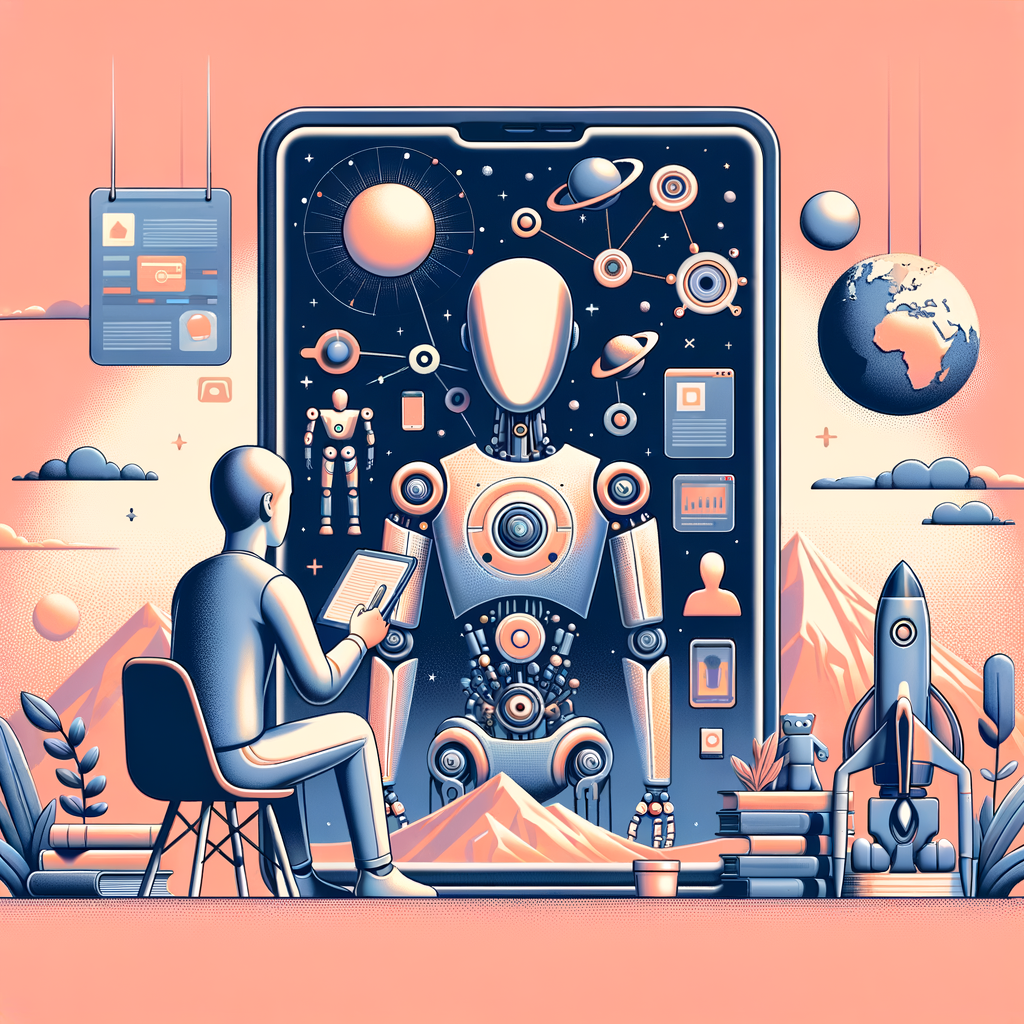
Exploring the Frontier: AI in Personalized E-Learning Platforms
Dive into the transformative world of AI in personalized e-learning platforms. This comprehensive blog uncovers how artificial intelligence is reshaping the educational landscape by offering individualized learning experiences. From adaptive learning technologies to intelligent tutoring systems, discover how AI is creating more engaging, effective, and customized learning environments.
Exploring the Frontier: AI in Personalized E-Learning Platforms
In recent years, artificial intelligence (AI) has made significant strides in various fields, from healthcare to finance, and education is no exception. AI in education is a growing trend that holds the potential to revolutionize how we teach and learn. With AI-powered personalized learning platforms, education can be tailored to meet the unique needs of individual students, enhancing both the learning process and outcomes.
The Need for Personalized Learning
Traditional classroom settings often follow a one-size-fits-all approach, where all students are taught the same material at the same pace. However, this method does not account for the differences in students' learning styles, paces, and needs. Personalized learning seeks to address these differences by offering customized educational experiences that can adapt to each student's specific requirements.
How AI Enhances Personalized Learning
AI technologies, such as machine learning algorithms and natural language processing, are at the heart of personalized e-learning platforms. These technologies help analyze student data to provide tailored content and feedback.
Adaptive Learning Technologies
Adaptive learning technologies utilize AI to create a dynamic learning path for each student. By continuously analyzing student performance and engagement, these systems can adjust the difficulty of content, suggest supplemental resources, and provide feedback in real-time. This ensures that students are neither bored with materials that are too easy nor overwhelmed by those that are too difficult.
Intelligent Tutoring Systems
Intelligent tutoring systems (ITS) are AI-powered platforms that function like a virtual teacher. These systems can deliver interactive lessons, assess student understanding, and offer personalized feedback and guidance. Unlike human teachers, ITS can be available 24/7, offering students the flexibility to learn at their own pace and time.
Data-Driven Insights
AI can analyze massive amounts of data to identify trends and patterns in student learning behaviors. Educators and institutions can use these insights to improve curriculum design, teaching strategies, and student support services. By understanding how different students learn best, teachers can make informed decisions that enhance educational outcomes.
Benefits of AI in Personalized E-Learning
-
Enhancing Student Engagement: By providing content that matches a student's interests and learning style, personalized platforms can increase student motivation and engagement. Engaged students are more likely to achieve better academic results.
-
Supporting Teachers: AI doesn't replace teachers but rather augments their capabilities. Educators can spend more time focusing on students who need additional help and less time on administrative tasks.
-
Lifetime Learning: Personalized e-learning platforms facilitate lifelong learning by adapting to the evolving needs and interests of learners, encouraging continuous personal and professional development.
Challenges and Considerations
While the benefits of AI in personalized e-learning are promising, there are challenges that need addressing:
- Data Privacy: With the extensive data collection involved, ensuring student data privacy and security is paramount.
- Equity in Access: Ensuring all students have equal access to AI-powered tools is crucial to avoid widening educational disparities.
- Quality Control: Continuous evaluation of AI systems is essential to ensure they are providing accurate and effective educational recommendations and content.
The Future of AI in Education
The application of AI in education is still in its early stages, but the potential for growth is immense. As technology advances, AI will play a larger role in creating more intuitive, personalized, and effective learning environments. By collaborating with educators, developers, and policymakers, we can ensure that AI-powered personalized learning platforms are accessible, effective, and equitable for all students.
In conclusion, AI has the potential to completely transform personalized learning by making education more adaptable to individual needs. The journey to fully integrating AI in education will require thoughtful consideration of ethical, equitable, and technical challenges. As we advance, the educational landscape promises to become more inclusive and effective thanks to innovative AI technologies.